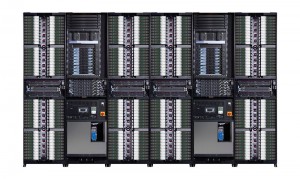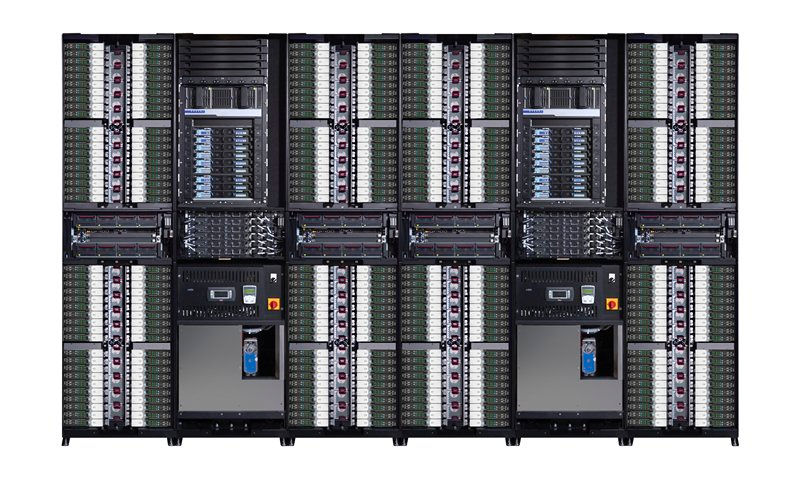 This week HP rolled out a new lineup of density-optimized servers with innovative cooling technology. Tailor-made for the HPC market, the Apollo Series combines a modular design with innovative power distribution and air- and liquid-cooling techniques for extreme performance at rack scale, providing up to four times more performance per square foot than standard rack servers.
This week HP rolled out a new lineup of density-optimized servers with innovative cooling technology. Tailor-made for the HPC market, the Apollo Series combines a modular design with innovative power distribution and air- and liquid-cooling techniques for extreme performance at rack scale, providing up to four times more performance per square foot than standard rack servers.
In this video, HP’s Robert Voss walks through the new HP Apollo 6000 System density-optimized system. Designed for rack-scale, this System starts with a 5U building block that fits up to 10 trays. Each ProLiant XL220a Server tray has two nodes, with up to 32Gb memory, x8 PCIe, 2TB storage per node. The external power shelf supports up to 6 chassis, while the Advanced Power Manager provides power management and capping at the server, chassis, and rack level.
In this video, Stephen Hammond from NREL describes how the new warm-water cooled Apollo system met his organizational goals for a new petaflops supercomputer with a PUE of only 1.06, becoming a showcase for energy efficient high performance computing.
Leveraging the efficiency of HP Apollo 8000, we expect to save $800,000 in operating expenses per year,” Steve Hammond, director, Computational Science Center, NREL. “Because we are capturing and using waste heat, we estimate we will save another $200,000 that would otherwise be used to heat the building. We are saving $1 million per year in operations costs for a data center that cost less to build than a typical data center.”
In related news, HP also introduced HP Helion Self-Service HPC, a private cloud solution based on the HP Helion OpenStack cloud platform that provides a self-service portal containing HPC resources via a user-friendly application interface.




